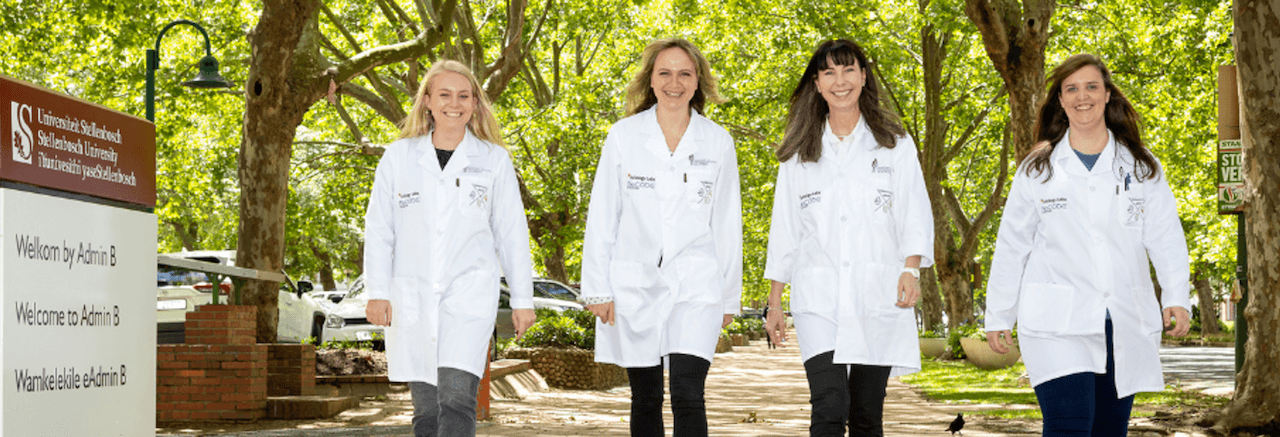November 11, 2021 — A research team from the Department of Physiological Sciences at the University of Stellenbosch (SU) is on their way to Mülheim in Germany to meet with Dr. Beate Jaeger, who pioneered the use of apheresis in the treatment of people with long COVID, to work together.
This is part of an international research and collaborative effort focused on the treatment of long COVID. In South Africa alone, it is estimated that the prevalence of persistent COVID symptoms that last longer than 90 days affects at least 45% of the 2.7 million South Africans who have survived SARS-Cov‑2 infection. This means that over 1.2 million South Africans may need further medical assistance for this very poorly understood condition.
Prof. Pretorius, head of the SU Department of Physiological Sciences, says that the social and economic burden of this condition will be staggering if effective treatments are not developed: “We will work with Dr. Jaeger work together to determine the effectiveness and feasibility of H.E.L.P. apheresis in the treatment of individuals
Apheresis essentially means the separation of plasma from blood cells in order to remove pathogenic substances from the blood in the treatment of chronic metabolic diseases. H.E.L.P. apheresis, whereby H.E.L.P. stands for heparin-induced extracorporeal lipoprotein / fibrinogen precipitate consists of four steps: plasma separation, precipitation with subsequent filtration, heparin adsorption and ultrafiltration.
Dr. Jaeger has been working with the H.E.L.P. since 1985. ‑Apheresis and treats patients with metabolic diseases in collaboration with the inventor of the machine. She is currently using the B Braun H.E.L.P. apheresis machine to treat people suffering from Long COVID to filter out micro clots, clotting factors, cholesterol, fibrinogen, cytokines, the COVID spike protein and autoantibodies.
It was only after Prof. Pretorius found evidence of overloading insoluble inflammatory micro-clots circulating in the blood of people with long-COVID that apheresis began to make sense as a potential treatment option. This phenomenon has so far gone unnoticed as normal coagulation tests do not really reflect the hypercoagulable condition in acute COVID patients. Typical laboratory pathology tests are usually only performed on plasma, without any cellular material such as platelets.
Prof. Pretorius says the collaboration will be invaluable in evaluating the technology and establishing a treatment protocol for the treatment of long COVID. Based on this ongoing research effort, she and Dr. Chantelle Venter with the support of Dr. Jaco Laubscher is developing a micro-clot and platelet grading system that will help interpret results and treat people with long COVID more personally.
Accompanied them to Germany are Dr. Chantelle Venter, technical officer and head of the blood laboratory in the SU Department of Physiological Sciences, as well as Esté Burger and Simoné Turner, who both completed their postgraduate studies at SU in 2020. You are currently employed by the SU start-up company BioCODE Technologies.
In South Africa, Prof. Pretorius works closely with Dr. Maré Vlok, a senior proteonomic analyst at the Central Analytical Facilities of the SU, and Dr. Jaco Laubscher and Dr. Johan Lourens, both internists at Mediclinic in Stellenbosch, together. They examine coagulation and platelet defects in both acute and long COVID patients.
Author: Media & Communication, Faculty of Mathematics and Natural SciencesV — published
